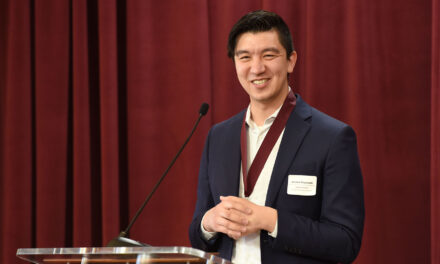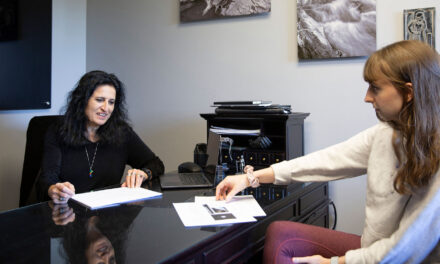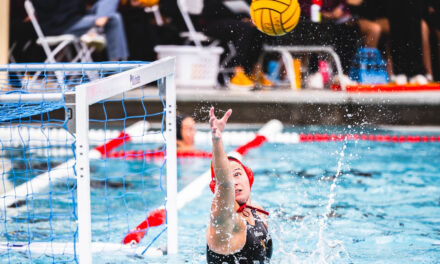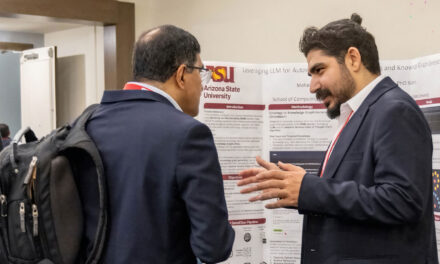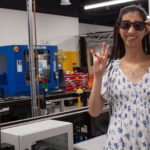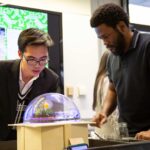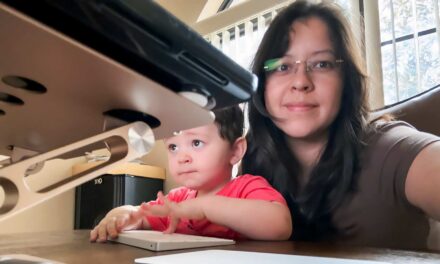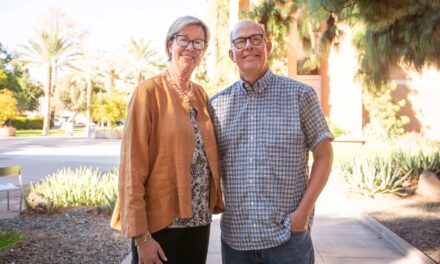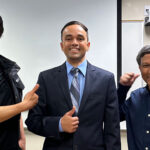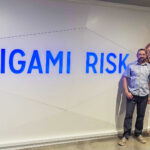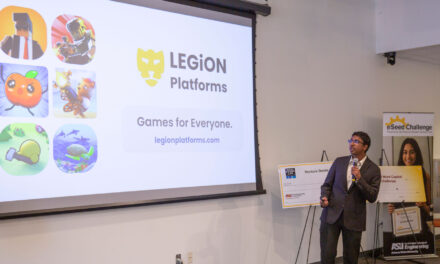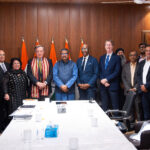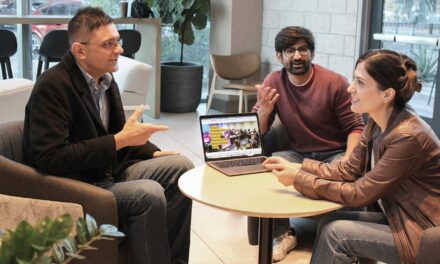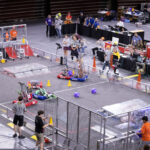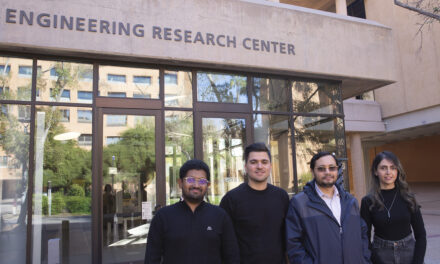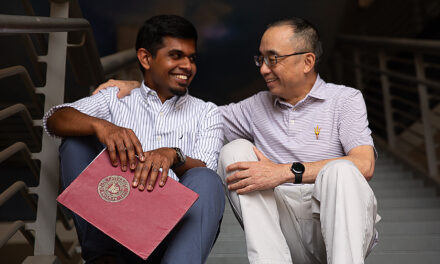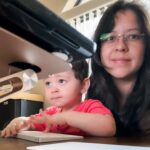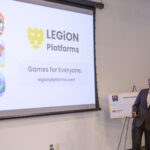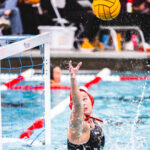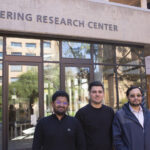
Meet student researchers addressing sustainability and social challenges
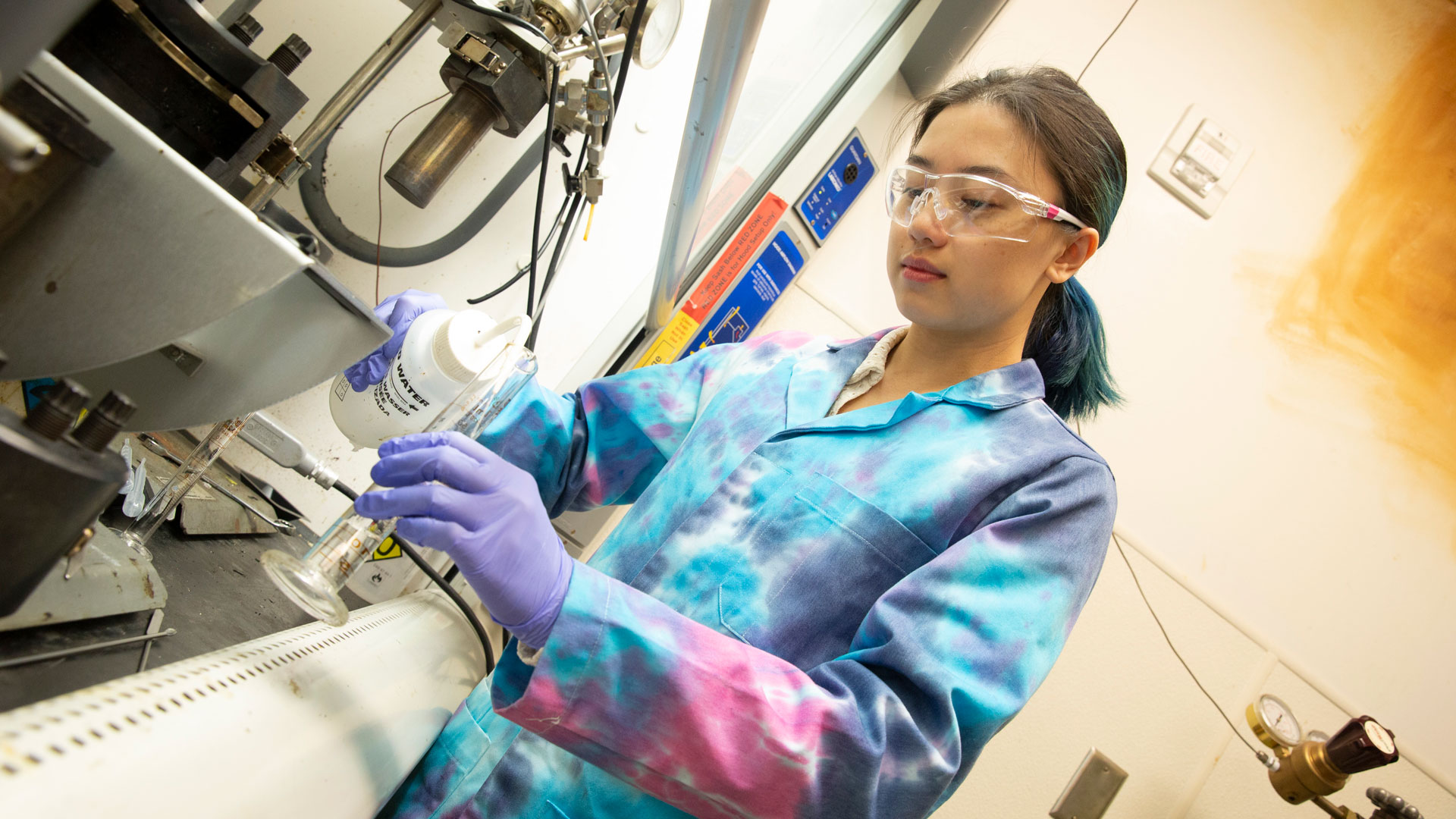
This article is the second part of a two-part series highlighting student researchers and faculty mentors presenting at the Spring 2023 FURI Symposium on April 21. Read part one. Learn more about the symposium.
Turning mine waste into concrete, studying the effects of microplastics and pesticides on soil, investigating the impact of teaching techniques on mental well-being and analyzing supply chains to predict disruptive events are just some of the ways Arizona State University students are solving real-world problems through hands-on research.
Students in the Ira A. Fulton Schools of Engineering at ASU can apply their classroom knowledge in a range of research pursuits. Their work delivers innovation that matters for challenges in data science, education, energy, health, security, semiconductor manufacturing and sustainability.
The Fulton Undergraduate Research Initiative, or FURI, and the Master’s Opportunity for Research in Engineering, or MORE, programs give students valuable experiences in which they spend a semester conceptualizing an idea, developing a plan and investigating their research question with a faculty mentor.
Students in the Grand Challenges Scholars Program, or GCSP, have the option to conduct research as part of the program’s rigorous competency requirements that prepare them to solve complex global societal challenges.
These three programs enhance students’ ability to innovate, think independently and solve problems in their communities. They also benefit from the technical and soft skills they gain, which prepare them for their careers and pursuit of advanced degrees.
Twice per year, students who participate in FURI, MORE and GCSP are invited to present their research findings at the FURI Symposium. Learn about four Fulton Schools students participating in the Spring 2023 FURI Symposium. Meet them and more than 100 other student investigators at the event, which is open to the public, on Friday, April 21, 1–3 p.m. at the Sun Devil Fitness Complex on the ASU Tempe campus.
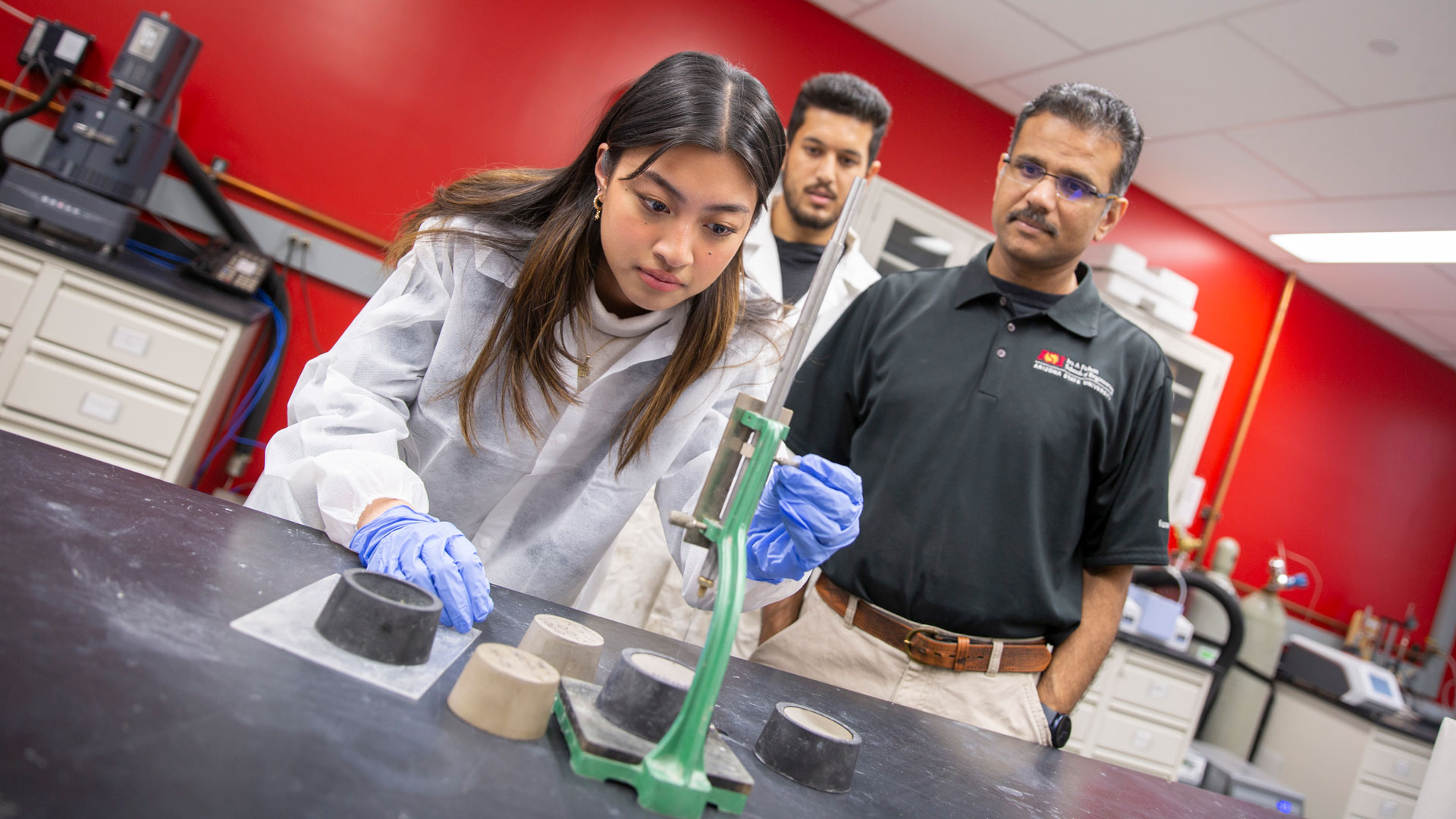
Photographer: Erika Gronek/ASU
Lana Banzon
Lana Banzon, a civil engineering junior, is exploring how to turn mine tailings — the byproducts or waste from the mining process — into valuable silicon salts in a FURI project with faculty mentor Narayanan Neithalath, a professor of civil and environmental engineering. Practices for mining uranium and other resources are often highly toxic, however, a process called alkali activation can help silicates in mine tailings be used as an eco-friendly binder for concrete or grout and can play a significant role in creating a circular economy.
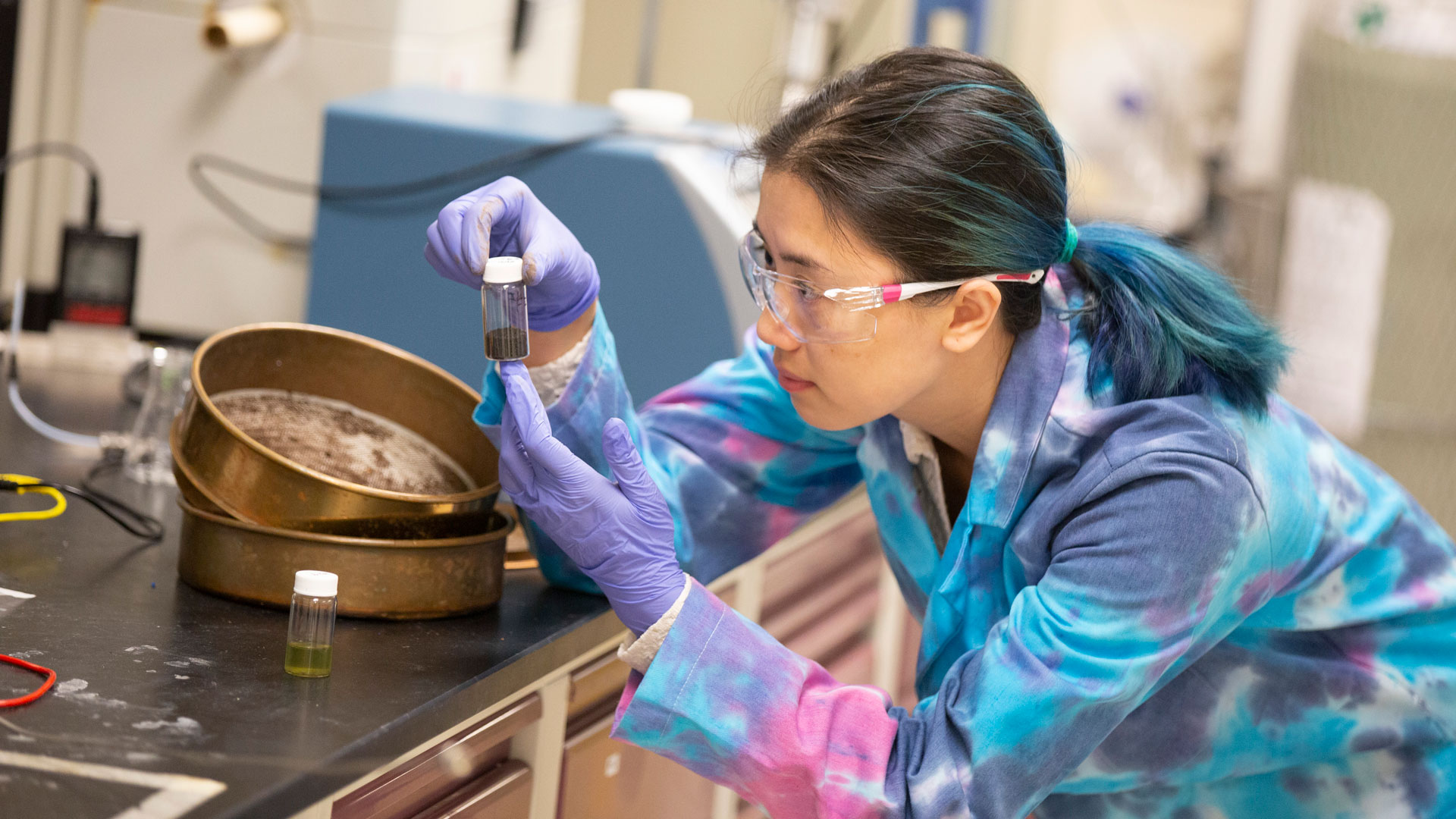
Photographer: Erika Gronek/ASU
Kelly Nguyen
Kelly Nguyen is a chemical engineering junior researching how microplastics in combination with pesticides affect soil contamination. This FURI project under the mentorship of Shuguang Deng, a professor of chemical engineering, provides new information about the environmental impact of microplastics and how humanity can more sustainably interact with the environment in the future.
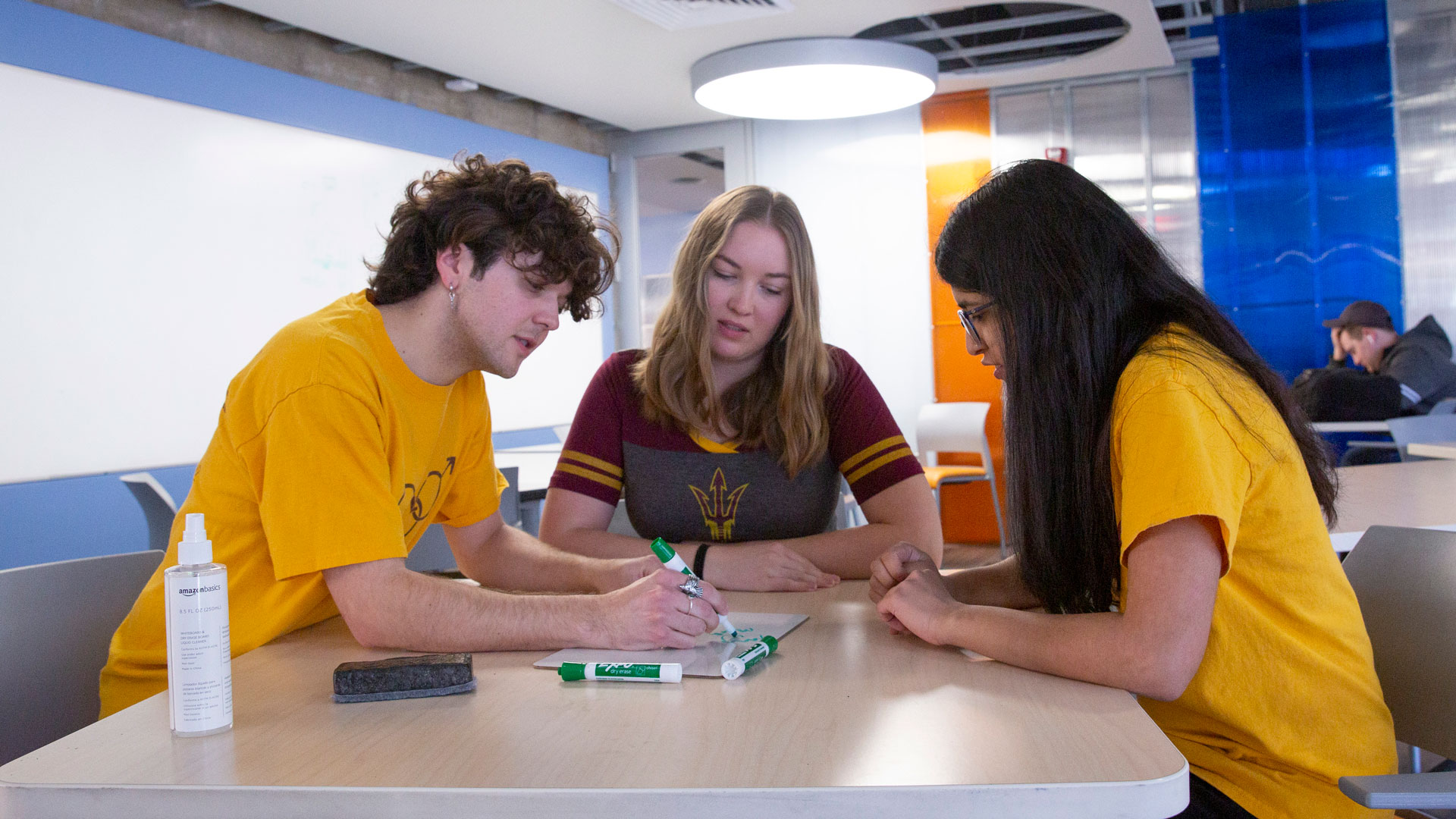
Daniella Pautz (center) with Maxwell Johnson (left) and Ruhi Dharan (right). Photographer: Erika Gronek/ASU
Daniella Pautz
Biomedical engineering graduate student Daniella Pautz is exploring how engineering professors can use persuasion methods to help students succeed in class and improve their mental well-being. Her MORE research with faculty mentor Claire Honeycutt, an assistant professor of biomedical engineering, seeks to address the high rates of depression and anxiety among engineering students and help them succeed in this difficult field of study.
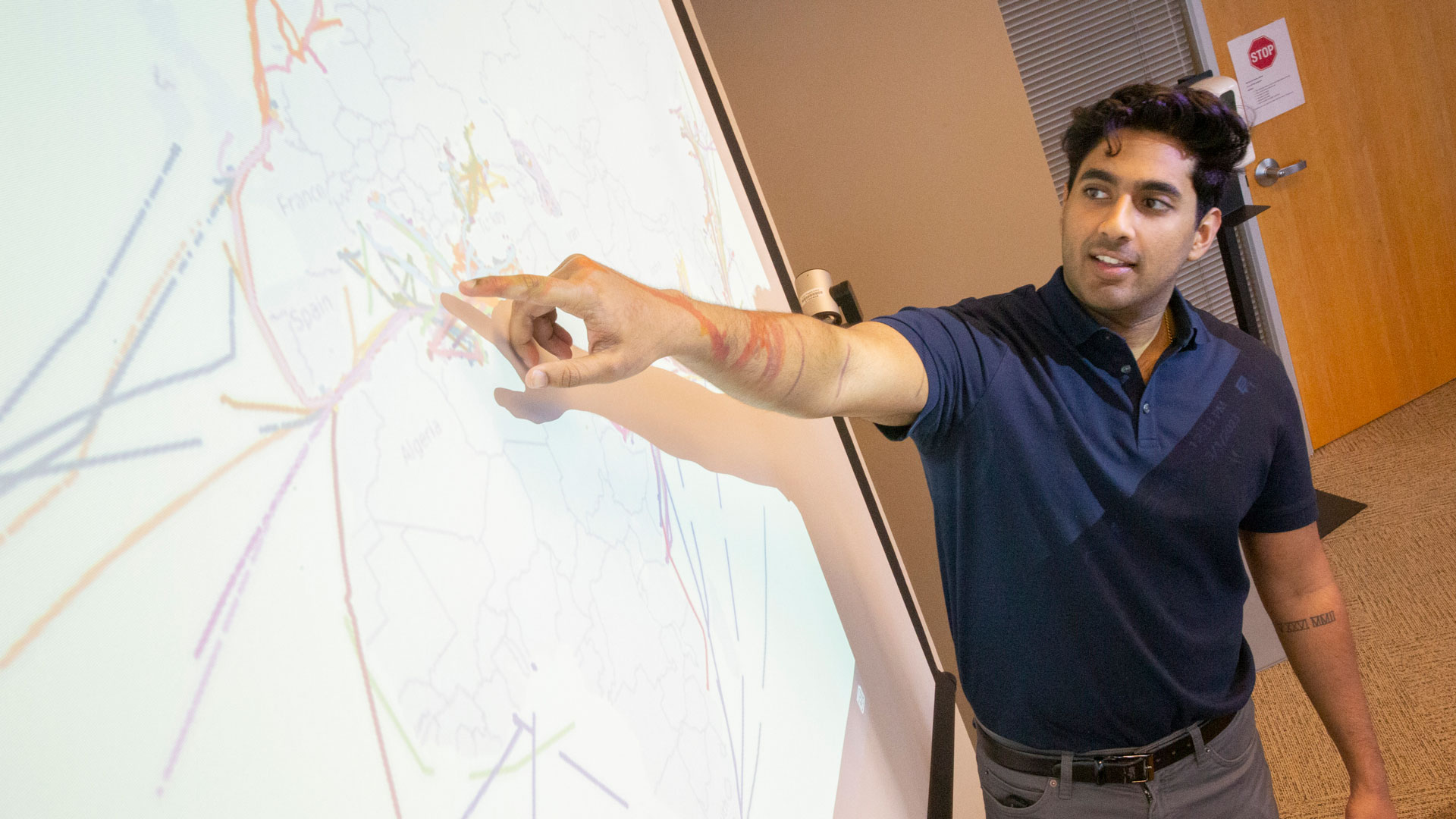
Photographer: Erika Gronek/ASU
Rohan Nair
As part of the GCSP program, computer science sophomore Rohan Nair is investigating how global supply chain data can predict future legal, environmental, economic or political events that are disruptive to commerce and society. Nair is working with faculty mentor Paulo Shakarian, an associate professor of computer science and engineering, to use the vast amount of location and trade data from ocean-based shipping to help address the grand challenge of security.


